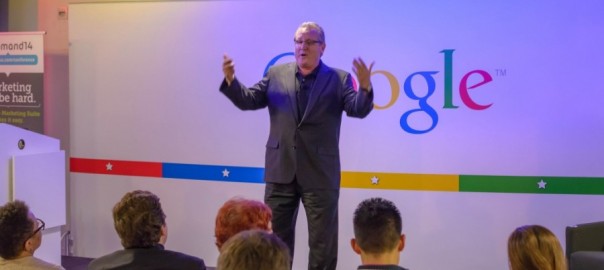I have been running my own business for about seven years now and creating online content about the same amount of time. The genesis of my business — 2008 — probably represented the apex of the traditional notion of SEO – elaborate schemes for backlinks, keyword stuffing, and jamming links into every cranny of the web, including blog comments.
And I virtually ignored it all.
Sure, I learned about SEO. I even experimented with it. But I generally ignored all of the SEO best practices of the day. I was the least-optimized blogger on earth for one reason – I knew the structure of the SEO system could not last.
I don’t want to come across as arrogant or prescient. It was just common sense.
I knew that for Google to succeed, the company simply could not let these backlink tricksters rule their business. Essentially, their end product – a search result – was in the hands of others, including, at the time, the SEO black hat demons. If SEO alchemy determined organic search results instead of quality content the Google business model would collapse. Over time, Google would have to address this problem and block out the backlink hacks and reward original, quality content.
Is writing SEO?
So, instead of focusing on the popular SEO practices of the day, I doubled down on highly valuable content. It turns out that was the correct strategy. Every single algorithmic change Google has implemented between 2008 and today has rewarded my content-centric approach and torpedoed the SEO link wrestling game.
Now, everybody is catching up to that reality. SEO is turning to content creation as a means to their end. An SEO professional recently remarked to me what a great job I was doing with SEO. I protested. “I don’t have a systematic strategy,” I said. “I’m just producing great content.”
“Yes,” he said. “Great writing — That’s SEO!”
At first I was a little offended by this. The SEO profession has seemingly co-opted my writing as a lead strategy? If you could create backlinks by planting corn, would farming now become part of SEO?
The point is, the entire concept of SEO is really a limited and outdated notion. Instead of optimizing for search, we need to optimize our marketing. Our content and our businesses are being found in a thousand different ways today that require a holistic approach to brand ignition. Some of the techniques include:
- Content and context-driven branding
- Strategic audience building
- Content distribution strategies
- Building shareability into our content
- Creating a network of actionable influencers
- Promotion and advertising
… and yes maybe even some link-building.
The new marketing focus
Smart businesses must start breaking down the silos of SEO, PR, marketing, advertising, and content to piece together a holistic approach to success. This is the theme of my new book The Content Code. I suggest in this book that the current focus of SEO, content, social media, and audience-building is mis-directed. The missing element is ignition. All this work matters very little if our content is not shared, if it doesn’t move through the Internet in a way that creates action.
This is not just a strategic imperative. It is an economic imperative.
- Sharing content creates organic advocacy.
- Shared content influences purchasing decisions among 70 percent of consumers.
- Shared content might be the only thing that matters to Millennials, who have an enormous distrust of companies and advertising.
This means that to succeed on the Internet today, our companies will have to build a competency centered on content ignition…and that has profound implications for strategy, skillsets, even the way we are organized in our marketing departments.
Make sense? Are you ready to learn the true Content Code and evolve to an ignition-centered business?
(164)










